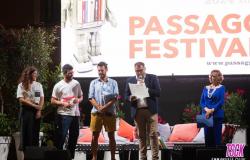Not just municipal and European elections.
On the weekend of 8 and 9 June the polls will also concern Piedmontwhose inhabitants will be called to elect the members of the regional council and the new president of the regional council.
It’s a five-way challenge between the outgoing team – Alberto Ciriosupported by the center-right -, the candidate of the Five Star Movement, Sarah Disabato, Francesca Frediani of popular Piedmont, Alberto Costanzo for the Freedom list, e Gianna Pentenero, an expression of the centre-left, councilor of the Municipality of Turin for safety and work policies, and former councilor for Labor of the Piedmont Region. Which between 2017 and 2019 expressed itself several times on gaming matters, defending the legitimacy of the regional law on the subject passed in 2015, and which now responds to GiocoNews.it’s questions, expressing a point of view that will certainly cause discussion among operators in the sector.
What are the results of your mandate as councilor that you are most proud of?
“As my last assignment, as councilor for work and safety of the Municipality of Turin, there are many provisions that I am proud of. It was an important activity, but above all a human experience that allowed me to get to know the great professionalism of the local police force of the city of Turin and of the municipal machine. Among the measures, I would certainly say the Night Government Plan as a framework measure for the regulation of the night-time economy, the right to entertainment and the right to rest. Furthermore, in two years we have reactivated the employment service of the city of Turin, also reopening a job desk for each quadrant of the city.”
What are, briefly, the central points of your electoral program?
“There have been five years of direct interventions, often with small contributions arriving in the area, bypassing any type of needs planning. There is a lack of a health plan and a transport plan, there is no idea of training and connection with schools and the world of the third sector. A situation that could worsen further with the Calderoli reform, which risks dividing the country into 21 regional micro entities.
Our program wants to give back to citizens hopes and clear ideas for the future; it is not just a government program, but a document that indicates the way forward to promote strong, sustainable and inclusive development, defining and detailing concrete principles and policies. It is a program which, in addition to analyzing and proposing solutions for the concrete problems of the Piedmontese, proposes a clear vision of the future: we want economic and social rights to be better protected, for inequalities to be drastically reduced, for the climate issue to be addressed seriously .
We have rethought the development of our region according to a new paradigm, to ensure that Piedmont returns to grow and occupy the role it deserves. The program puts the well-being and health of the population first, in particular the most fragile and at-risk sectors. A development that enriches a few is neither morally right nor useful, especially in a historical phase characterized by high and increased social inequalities, by the environmental and climate emergency and by the difficulties of the regional economy.”
Would you hope for a revision of the regional law on gaming in the next council session, and in which direction?
“Together with the coalition that supports me, I believe overcoming the current gaming law is a prioritythe subject of an absolutely wrong modification by the current regional administration, which has nullified the results obtained with the previous 2016 law.
The direction of our proposal is that of reduce the gaming offerwhich, as demonstrated by the data, produces direct effects on the volume of gambling and consequently on the reduction of the risks of gambling addiction.
In Piedmont, starting from 2016, the year of approval of the previous law, there was a decrease in the volume of bets equal to -11 percent (572 million euros).
The lower gaming volume is correlated to the volume of losses by players: also in this case we are faced with a clear decline of 16.5 percent for Piedmont, compared to a much slower decrease (-0.9 percent ) for the rest of the country. This means that in 2019 – the year in which the 2016 law came into full force, without the socio-economic repercussions of the pandemic – players lost 206 million euros less than they had lost in 2016.
Given these data, we believe that the starting base, by virtue of the great support with 12,000 signatures collected by Libera and the promoting associations and organizations and by the subscription of dozens of municipalities coordinated by the association ‘Notice public. Local authorities and regions against mafias and corruption’, should be the popular initiative and local authorities bill presented by them in 2022 and rejected in a few minutes by the current centre-right majority.
In Piedmont, the average spending per player is 6,000 euros, the total spent in 2022 was 8 billion euros with a post-pandemic growth in Piedmont of +71 percent (against the national average of +61 percent). The total collection went from more than 5 billion in 2016 to around 4 and a half billion euros in 2019, and the decrease is also seen in terms of spending, i.e. losses by players.
In 2021 (the year in which the law remained in force until July) the collection was 6.8 billion, increasing, but less than the national average: the Piedmontese per capita average is 1,588 euros, while the national one stands at 1,880 percent per capita. Patients being treated at Serd for gambling in 2016 were 1,327, in 2019 they decreased to 1,054 and in 2021 the number dropped to 765.
A final element worthy of mention is the decrease in the number of slot machines present in the regional territory: if in 2016 there were 29,544 AWPs, in 2019 they dropped to 12,274. From 2016 to 2020, the premises with devices (New slots and VLTs) decreased by 5,039 units, almost 80 percent.
With the repeal of regional law n° 9/2016 and the introduction of regional law n° 19/2021, many of the results just highlighted have ceased to exist, since the law currently in force has allowed the gaming offer on the territory. To confirm this situation, in the first months of application of the law (September-December 2021), 232 requests were sent to the Municipality of Turin alone for the reinstallation of devices that had been turned off thanks to the previous law, for gaming on the premises.
In 2021, gaming machines in Piedmont increased by around 1,000 units, while in the rest of the country they decreased. Towards the end of 2021 in Piedmont we find 51.4 devices per 10,000 residents, an increase of 10.3 percent in a year in contrast to the national average which sees a decrease of 1.4 percent in a year.”
You are in favor of the national reorganization of physical gaming – currently under discussion with a discussion between the Ministry of Economy and the Conference of Regions – with the launch of a distance meter and equal time limits for everyone, and the Regions sharing in the tax profits deriving from gaming (proposed by the Conference of Regions)?
“The objective was and is, in my opinion, to reduce supply by increasing sensitive places (universities, kindergartens, community centres, libraries…) compared to the existing ones and from there apply the distance meter (300 meters for municipalities with a population of up to 5,000 inhabitants and 500 meters for municipalities with a higher population). In this context, it is essential to return to the Municipalities the function of defining sensitive places, discouraging access to gaming through the failure to grant authorizations for the switching on of new slot machines included in the distance meter and by switching off those in operation that do not respect the distance from same.
Furthermore, I believe it is essential to reduce the switching times of gaming machines (for a maximum of 10 hours within 24 hours). This must be accompanied by information and awareness-raising actions on the risks related to pathological gambling and the consequences at a family, social and work level, to prevent and combat gambling addiction in Piedmont.
These measures, combined with interventions on IRAP with the aim of rewarding those who remove the devices and do not install them with a reduction, I believe are an effective response to a situation that affects the most fragile segments of the population, increases social and health costs and facilitates mafias and criminal organizations, which see legal gaming as a market in which to invest to launder the proceeds of illicit activities.
In recent years, gambling collections in Italy have seen a strong growth trend: the data reported in the Adm Blue Book for 2022 speak of 136 billion in collections, compared to 111 billion in 2021, 88 billion in 2020 and 110 billion in 2019. The estimates reported by the undersecretary of the Ministry of Economy and Finance, Sandra Savino, speak of 149 billion in total collections for 2023. The growth trend recorded in the last two years, in particular, is characterized by the joint increase in both physical network collection and remote collection. In particular: in 2021: physical gaming +12.68 percent compared to the previous year; remote gaming +36.53 percent compared to the previous year and in 2022: physical gaming +43.17 percent compared to the previous year; remote gaming +8.78 percent compared to the previous year.
Furthermore, as regards online gaming, there is also growth in the number of active gaming accounts: there were 15.9 million in 2021, increased in twelve months to 17.2 million in 2022. Collection on the physical network and online gaming distance are therefore not alternatives to each other, but rather complementary.
The centre-right regions contradict the jurisprudence that legitimizes the distance meter and favors the reduction of supply (Piedmont, Lazio, Marche, Calabria, Sicily). This reduction is enough for them and they even ask the State-Regions Conference for a part of the tax revenue (which is hilarious: 10 billion out of 140 billion played). The reduction of gaming opportunities, in fact, according to pronouncements of the Council of State, makes it possible to safeguard the groups of consumers who are psychologically more vulnerable and immature and, therefore, more exposed to the suggestive capacity of the illusion of achieving, through gaming, winnings and easy earnings (see, among others, Council of State, ruling 11426/2022).
The legislative decree of 13 September 2012, n. 158, now over ten years ago, updated the essential levels of assistance (Lea) with reference to the prevention, treatment and rehabilitation services aimed at people suffering from ‘gambling addiction’, also providing for a series of measures to prevent and combat gambling disorder game (including provisions regarding advertising and warnings)”.





